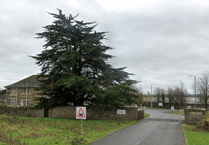Mark Drakeford has thrown down the gauntlet to opposition parties, warning failing to pass the Welsh budget would result in cuts of up to £7bn and thousands of job losses.
The finance secretary dangled an olive branch, with £380m on the table to find “common priorities” with other parties to get the Welsh Government’s £27bn draft budget over the line.
Prof Drakeford outlined the draft 2026/27 budget on 14 October which funds everything from health and education to culture, councils and the environment in Wales.
His draft budget includes an extra £800m compared with last year’s spending plans.
Prof Drakeford will be guiding his ninth and final budget through the Senedd as finance secretary or formerly first minister – and next year’s promises to be the most difficult yet.
Labour needs the support of at least one opposition Senedd member to pass its 2026/27 budget.
Failure to agree a budget would result in public services in Wales facing sweeping cuts.
If not passed in the Senedd by April, spending plans would revert to 75 per cent of last year’s budget which would rise to 95 per cent if still not agreed by the end of July.
This would also impact directly funded bodies such as the Senedd commission and Wales Audit Office.
Last year, it was estimated that failing to pass motions on the budget and Welsh rates of income tax could potentially see Wales lose around £4bn.
The parliamentary arithmetic suggests ministers would either need to win over Plaid Cymru, the Conservatives, Rhys ab Owen or Russell George – who sit as independents – or Tory-turned-Reform UK Senedd member Laura Anne Jones to escape such a scenario.
Plaid Cymru has helped ministers pass budgets in recent years before the agreement between the two collapsed in 2024.
Rhun ap Iorwerth has not ruled out a deal though his party would be loath to lend its support with an election on the horizon in May.
But the Conservatives have extended an olive branch, saying a deal may be possible.
Darren Millar, the leader of the opposition, suggested his party could help pass the budget if the Welsh Government scrapped land transaction tax – Wales’ equivalent of stamp duty.
In a letter to first minister Eluned Morgan, he wrote: “While we disagree fundamentally with the Labour Welsh Government on many issues, and on many of your spending priorities, we also accept that it would be irresponsible not to offer to engage with you on this issue.”
Both Plaid Cymru and the Conservatives voted against last year’s budget.
Last year’s budget was voted through after ministers cut a £100m deal with Jane Dodds, the Liberal Democrats’ Welsh leader and the party’s sole Senedd member.
Prof Drakeford warned the Senedd: “The weeks ahead must culminate in the passing of a budget… every member here will have a part to play, every political party a responsibility.”
In the event of no deal, the former first minister added: “Instead of me coming forward with a budget that adds £800m into our public services, I would be coming forward with a budget that cuts everything this Senedd does by between £6bn and £7bn.”
During a debate on the outline spending plans, Sam Rowlands, the Tory shadow finance secretary, pointed to his party’s offer of talks.
The Conservatives suggested their support would depend on ministers scrapping land transaction tax for people’s primary homes. Wales’ equivalent of stamp duty, which is levied on commercial and residential property purchases, is forecast to raise £401m next year.
At first minister’s questions earlier the same day – Eluned Morgan welcomed talks on a deal with the Tories, telling opposition leader Darren Millar: “I am very pleased that you’ve written to me today – this demonstrates grown up politics…. our door is open.”
Heledd Fychan, Plaid Cymru’s shadow finance secretary, expressed concerns about the impact on local government of passing the budget as drafted, warning of council tax increases of up to 20 per cent and thousands of jobs lost to make up a shortfall.
Ms Fychan said: “The warnings have been clear, so there is a requirement on us to be mature in our approach to this debate in the coming months.”
Labour’s Mike Hedges warned of "catastrophic" consequences for the people of Wales if the budget is not passed, pointing out that Senedd politicians’ salaries could also be affected.
He warned a planned two to three per cent increase in the budget would result in a real-terms cut.
Ms Dodds told Senedd members: “I am prepared and willing to work with any party to find a constructive way forward with this budget as I did last year.
“We need to be ambitious.”
Prof Drakeford confirmed the draft budget does not include funding to further extend the retail, leisure and hospitality rates relief scheme.
But he announced plans to cut business rates for “bricks-and-mortar” shops, with the details to follow in January’s final budget.
The finance secretary stressed the draft budget is the beginning of the process, not the end.
Setting out what’s at stake, he told the Senedd: “These are people’s pay packets; they are the accounts of local businesses; the free school meals and teaching materials in our schools; the new trains on our railways and homes in our communities.
“They are the thousands of childcare placements which look after our children; the new roof on an art gallery; the prescriptions taken every day and the new life-saving medicines.”
The former first minister confirmed the Welsh Government would provide a “funding floor” in the draft budget, with the aim of ensuring no council receives less than a 2.3 per cent increase.
“We must work together to secure a final budget which can be passed…. It is our responsibility as elected members to secure the best possible budget for public services in Wales,” he added.
“To that end, I urge all members to engage with me in discussions over the coming weeks so this draft budget can lead to a final set of proposals which can be passed.
Prof Drakeford published a “business-as-usual” draft budget, rising in line with inflation, in an effort to minimise political rows and avoid tying the next Welsh Government’s hands.
The draft budget allocates 98.6 per cent of available funds, leaving around £380 million unallocated.
He warned of “damage to Wales” if the draft budget – which includes about £13bn for health and social care as well as nearly £7bn for housing and councils – cannot be agreed.
Welsh rates of income tax and the main rates for land transaction tax rates would remain unchanged under current budget plans but the rates for landfill disposal tax would increase.
Prof Drakeford said: “My door remains firmly open to working with other political parties in the Senedd who share my conviction that we have a collective responsibility to pass the Welsh budget and believe a more ambitious budget could be agreed.”
The former first minister will unveil a more detailed draft budget on 3 November
Chancellor Rachel Reeves will announce the UK’s autumn budget, detailing funding for Wales, on 26 November.
The final Welsh budget is then set to be published on 20 January, with a key vote in the Senedd pencilled in for 27 January.





Comments
This article has no comments yet. Be the first to leave a comment.